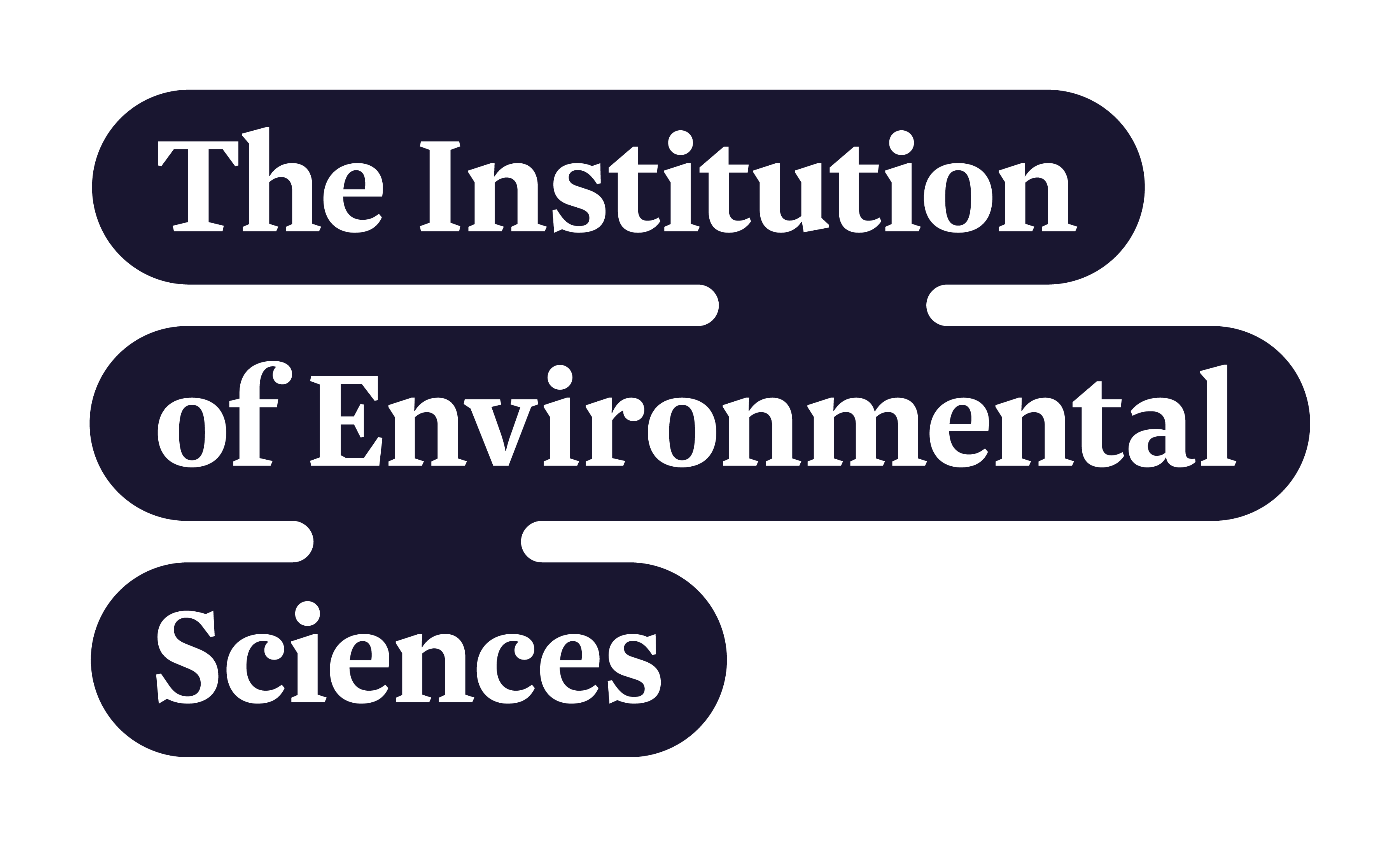Climate: roads and roadmaps
Joseph Lewis is Head of Policy at the Institution of Environmental Sciences, working to promote the use of the environmental sciences in decision making. Joseph leads the delivery of the IES Policy Programme, standing up for the voice of science, scientists, and the natural world in policy.
Joseph has ten years of experience in public policy, including in Parliament and the charity sector. He is particularly passionate about science communication and the role it can play in shaping environmental decisions.
As we look back at the summer from its latter days, the IES is looking ahead to the months to come, which will be pivotal for action on climate change.
The outcomes of the COP30 climate summit in November will shape the remaining half of this critical decade. Whatever path COP30 puts us on, the roads we walk (metaphorically) to get there will determine how productive the conference will be.
Having launched our ROAD to COP30 event series, we also have the opportunity to reflect on the roads that others will take, or at least their roadmaps: the UK is expected to publish a revised Carbon Budget Delivery Plan next month, which will inevitably set the stakes that the UK is planning to bring to diplomacy at COP30.
Why is the Carbon Budget Delivery Plan being revised?
Earlier in the year, we reflected on London Climate Action Week and the latest report from the Climate Change Committee. That report highlighted that nearly 40% of the UK’s plans to reach its 2030 contribution to reducing emissions faced “either significant risks, or insufficient or unquantified plans”.
In so doing, the report echoed the May 2024 High Court ruling that the UK’s plans for delivery were not sufficiently robust. Specifically, the High Court found that the current plan could not lawfully claim that it enabled the UK to meet its Carbon Budget commitments and that it required revision by May 2025. The deadline was subsequently changed to October 2025 due to the delay caused by the 2024 general election.
This should reflect an evident but overlooked truth: delivering policy is difficult. Even without the scale and diversity of environmental policies currently demanding effective implementation, policy delivery is set to be the challenge of the next decade.
Climate policy is especially challenging, as it links to a range of social and environmental systems which are complex by nature, often inhering against change or producing unintuitive results. Understanding these systems is integral to manipulating them, so delivering climate policy in practice can be a real challenge, even when there is strong public consensus for climate action and everyone wants the same outcomes.
That complexity is one of the main reasons that the IES teamed up with Environmental Protection UK to create the Environmental Policy Implementation Community (EPIC). For nearly two years now, EPIC has been leading the sector on the science of implementation, using expert insights to drive change in how environmental policy is delivered.
As we reflect on what to expect from the revisions to the Carbon Budget Delivery Plan, those same insights from implementation will be crucial to consider. Once the new plan is released, organisations like the IES will be reviewing it with a fine-toothed comb to see if it is better placed than its predecessor to make the UK’s ambitious climate targets a reality.
What should we expect from the revised plan?
Having reflected on the High Court judgment and the current state of climate policy in the UK, the IES has assembled some tentative predictions on what might make it into the revisions. From likely to unlikely, what changes should we expect in the Carbon Budget Delivery Plan, and what might be wishful thinking?
- Quantification of what can be quantified: Very likely. This is the crux of the issue: where it is possible to quantify the contributions of individual policies to reducing emissions and meeting the Carbon Budgets, we should expect to see clear quantifications. There are likely to be some areas where the contributions are harder to quantify, particularly around cumulative effects, and the revised plan may apply a lighter touch to these areas. Nonetheless, we should expect overall to see a Delivery Plan that outlines what outcomes these policies will deliver – and when.
- The Secretary of State’s decision making evaluation: Probably (in some form). Some of the grounds for judicial review were based on the extent to which the Secretary of State took account of material considerations during the decision making process. To stave off the prospect of future legal action, it seems probable that the revised plan will seek to make the decision making process slightly more explicit.
- Evaluative assessment of delivery risk: Likely. This was one of the key features of the discussion at the High Court, so it is likely that the Delivery Plan will feature a more explicit assessment of the risk posed by policies being un- (or under-) delivered.
- Reflections on the CCC report: Possibly. While the Government has other avenues to respond to the report by the CCC, it would be a missed opportunity if the Carbon Budget Delivery Plan made no mention of the report and what it means for delivering against the Carbon Budgets. The advice of the CCC was given great respect in the courts both in 2024 and in 2022, so the content of the revised plan will need to reflect the CCC’s evidence, even in the absence of specific reflections.
- Adjusting the emissions reduction forecasts based on uncertainty: Possibly not. This idea was mooted at the High Court and received positively by the Court as a potential solution to the uncertainty of policy delivery, but it isn’t a requirement of the judgment. For other approaches to handling uncertainty, see our collection of case studies for effective policy engagement.
- Risk Narratives and RAG ratings: Unlikely. One of the asks from Friends of the Earth at the High Court was around the Risk Narratives and RAG ratings used to determine the delivery risks around specific policies. The Court found that these did not need to be published in the Plan, so they aren’t likely to feature in the revision.
- New policy: Probably not. The Government’s approach to meeting its current Carbon Budgets seems clear and the role of the Delivery Plan is to set out how policies will deliver the budgets, so it’s unlikely that there will be many substantial changes in policy in the revised plan. However, with COP30 ahead, the prospect of further ratcheting up of the UK’s climate plans would not be unwelcome.
The delivery plan may also offer some initial insights into how the Government views its ongoing climate obligations, ahead of the seventh Carbon Budget, which will be set next year. Although recommendations around the scale of these budgets come from the Climate Change Committee, the Government’s appetite for change can be a key factor in determining how much progress they are able to represent in practice.
Further uncertainty may be driven by the changing tides of politics. Even in the face of a strong public consensus for climate action, political support for net zero has become more contentious. Even if the Government stays the course of its commitments, there may be material implications for the Delivery Plan, which accounts for estimated emission reductions by local authorities, some of which are now controlled by political parties that are seeking to reverse climate commitments.
How have the experts responded?
“COP30 will be a critical summit if we want the world to achieve our shared aspirations for climate action. Environmental professionals have a role to play in bridging the gap between these global summits and local communities, making delivery possible and linking climate action to our other objectives, including sustainable development and averting biodiversity loss. Fostering collaboration and innovation can empower communities to take meaningful steps towards a sustainable future.”
- Denise Adaoyibo Okpala, Member of IES Council and the Marine & Coastal Science Community Steering Group
“Professionals working ‘in the roots’ of implementing climate goals witness the necessity of climate leadership every day. As COP30 approaches, leaders from governments, businesses, and civil society must work together to achieve true systemic change—bringing technology, finance, and stakeholders into alignment to advance meaningful climate action. This summit stands as a crucial opportunity to accelerate global efforts on adaptation and resilience, which demand urgent attention."
- Kripa Dwarakanath, IES Climate Action Community Steering Member, and Sustainability Advisory Lead, GHD UK
“Action to deliver climate objectives is increasingly urgent. With only 21 countries meeting the deadline to update their climate targets earlier this year, the world needs more climate leadership. In particular, we cannot miss the opportunity of COP30 to take an approach that recognises the synergy between climate and biodiversity.”
- Dr Tom Raven, IES Full Member and member of External Policy Advisory Committee
“Climate change is a challenge that is bigger than any one person or field. We need whole communities of experts to come together to address it, and we need an interdisciplinary approach. The IES is playing its part: we are convening scientists across fields ahead of COP30 to help identify gaps, priorities for action, and find the answers our planet needs.”
- Ethny Childs, Head of Communities and Partnerships, Institution of Environmental Sciences
What should the key priorities be at COP30?
COP30 is more important than many of the other UN climate summits for two reasons:
- COP30 comes at a stage in the process under the Paris Agreement where countries are expected to ‘ratchet up’ their planned contributions. Every five years, the Agreement expects countries will return with higher ambitions than the previous cycle. Despite attempts to accelerate the rate of ‘ratcheting up’ at COP26 in Glasgow, the five-year cycle has more-or-less held its place as the de facto rate of change.
- COP30 comes at a time when climate action is increasingly threatened by the nature of international politics and populism, with serious attempts to undermine progress or push back against action. COP30 will, at the very least, need to maintain a stalwart commitment to moving forwards, potentially in the face of strong opposition from some countries.
In that context, the IES has identified four important global gaps that urgently need to be addressed when it comes to climate action:
- Systems level change: For climate mitigation to succeed, we need to transform the systems of consumption and production that drive unsustainable emissions. Incremental mitigation is no longer sufficient; we need a systemic approach.
- Financing the transition: Even if we can agree to the change we need, it needs to be properly funded. There is a massive finance gap when it comes to climate change, as well as a major task to connect emerging green finance with the right projects and actions.
- Upscaling adaptation: Reducing emissions is only part of climate action. Adaptation has seen significantly better recognition at recent COPs, yet many of the tools we are using are still nascent, underfunded, and require greater scale to ensure global resilience as we face the prospect of a world beyond 1.5 degrees of warming.
- Making things happen: As highlighted by the revisions to the Carbon Budget Delivery Plan, implementing policy is difficult. Delivering solutions in practice will always be harder than designing them, especially in the context of a global problem like climate change, where multiple complex and connected systems are involved.
If you want to hear more about how we can address these gaps, or if you have expertise that can help us to shape the agenda, sign up for our ROAD to COP30 event series.
To find out more about the ‘COP’ climate summits and their practical implications for environmental professionals, read our 2024 briefing on the most recent climate summit, COP29.
What are we doing to support delivery on climate action?
The IES Climate Action Community champions the work of professionals in climate action, promoting the work of experts and evidence around climate and driving change to ensure adaptation and mitigation measures are accurate, ambitious and achievable. The Community champions interdisciplinary working and a systems approach to the interlinked crises of climate change, biodiversity loss and pollution.
Between now and COP30, the IES will be holding four online discussion events. The four discussion events will each tackle a different theme, covering some of the most urgent priorities for COP30:
- Reimagining systems (29th September, 2pm-3.30pm)
- Operationalising finance (7th October, 2.30pm-4pm)
- Adapting to 1.5+ degrees (9th October, 12pm-1.30pm)
- Delivering solutions (16th October, 2pm-3.30pm)
These events will be free to attend and open to everyone, starting with a short panel discussion followed by an open 'roundtable' format. Before COP30, the outcomes of these discussions will be brought together in a position piece, which will used to brief the IES delegate attending COP30.
Get involved: if you want to support the work of the IES to stand up for science and nature, become an affiliate, or if you’re an environmental professional, join the IES.
- Find out more about the IES Climate Action Community and how you can join the IES
- Read our 2024 briefing on COP29 and climate action in the UK
- Be part of our work on climate change, including the ROAD to COP30 roundtable discussion series: contact Joseph Lewis, Head of Policy (joseph@the-ies.org) for more information
If you want to find out more about environmental policy or the training we offer for members, please contact Joseph Lewis, Head of Policy (joseph@the-ies.org).
Image credit: © Curioso.Photography via AdobeStock






